''The state gives less and less nonrepayable money, gets away from direct support''
Kazan entrepreneurs discussed the hot buttons with Boris Titov
Presidential Commissioner for Entrepreneurs' Rights Boris Titov visited Kazan with a working visit on 13 February. During the visit, the ombudsman met with entrepreneurs of the republic to identify and discuss with them the hot buttons of businesses. The correspondent of Realnoe Vremya also attended the coffee meeting with Titov.
''Without oil background, but quite successful''
The meeting of Tatarstan entrepreneurs with Boris Titov was held on 13 February in the restaurant Breadly and consisted mainly of informal communication. ''Such meetings with entrepreneurs will continue to take place in the form of coffee meetings,'' the moderator of the event, Commissioner for Business Rights of Tatarstan Timur Nagumanov, announced the new format.
The positive tone from which the event started persisted throughout the two-hour conversation. The federal business ombudsman made jokes and was clearly in a good mood. Titov began his welcome speech by telling the participants of the coffee meeting about business schools and their methods of work. In this context, he remembered Ayaz Shubutdinov (a well-known businessman, author and presenter of lectures on motivation and opening business — editor's note).
The Russian business ombudsman told entrepreneurs about the essence of the award Nemaly Business ('Large Business'), the author of which he is.
''Among the organizers of the award there are several of the largest and most famous business communities of the country: Synergy, Business Youth, Like, Experum and Black Star, as well as the educational marketplace Business Environment (Delovaya Sreda). We met with everyone and decided that we need to defend the business community, because the risks in the country are very high. The award is a good format for uniting. On the one hand, no one competes with each other. On the other hand, it is a real confirmation that the class of entrepreneurs already exists,'' Titov said.
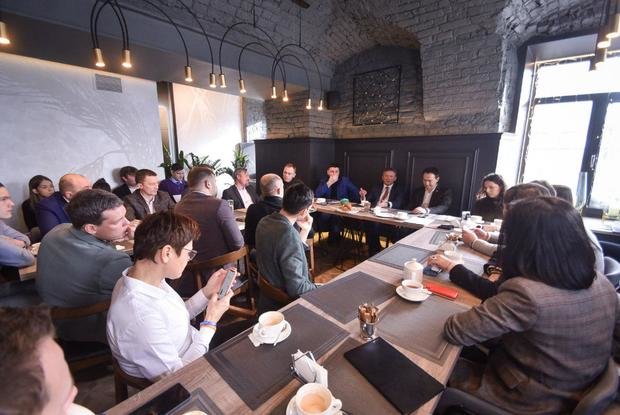
The chairman of Party of Growth highlighted the level of development of the young business generation.
''We all started at the beginning and only then we studied. We knew nothing about business. Now young people first study, what accounting, marketing, Internet is. And, of course, it gives them a huge competitive advantage over us,'' Titov said.
''We have gathered today entrepreneurs of the new wave. They do not have an oil background, but they are quite successful. Today they are doing well, they do not complain,'' continued Timur Nagumanov.
''You mean they do not whine?'' Titov specified.
Self-employed are afraid of Rospotrebnadzor inspections
Then the word passed to the truly guilty party of the meeting — entrepreneurs. There came about 20 entrepreneurs, including self-employed, franchise owners, and industrialists, to communicate with the federal business ombudsman.
The first speakers were representatives of self-employed, who not only have come out of the shadows, but even created their own autonomous non-profit organization. Yulia Reinwein pointed at not always correct work of the special applications for self-employed out of the problematic points. However, she added: ''But it is good that there's always the possibility to contact support.''
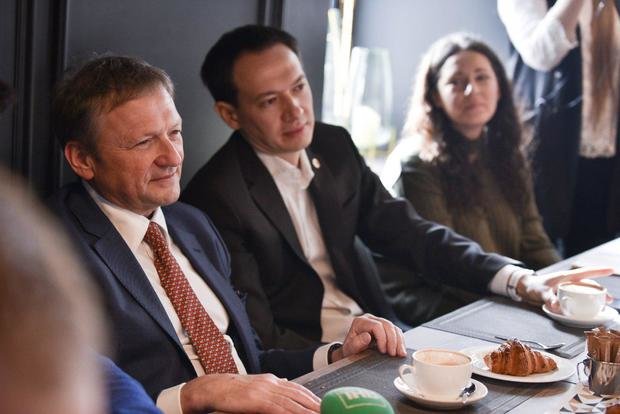
We all started at the beginning and only then we studied. We knew nothing about business. Now young people first study, what accounting, marketing, Internet is. And, of course, it gives them a huge competitive advantage over us
Another representative of the self-employed Liana Pakhareva noted that there are some difficulties at the initial stage. ''Today, many home confectioners do not come out of the shadows because they are afraid of Rospotrebnadzor inspections. Nevertheless, there are brave ones,'' she said. However, the position of self-employed, she said, have advantages.
''I can write checks now. This is a good enough reason for many buyers to trust. Measures of state support which are today are to help many self-employed to leave a shadow economy,'' Pakhareva added.
Demand for Russian brands increasing
The problem of low loyalty to the Russian brand was touched upon by representatives of three companies. The owner of the workshop of individual tailoring Harrison Work Ravil Kharisov complained that today there is a distrust of domestic producers. ''We need a programme to increase loyalty to our producers,'' said the businessman to Titov.
The founder of the brand Tolstoywear, Mikhail Kuznetsov, on the contrary, is sure that in the last two years the demand for the Russian brand is increasing. The direct proof is that many companies are switching from Latin to Cyrillic in the logos. In addition, there are many Russian brands appearing on the market.
''My daughter is engaged in a brand of clothes. I should also tell her to switch from Latin to Cyrillic. By the way, by her husband, she is also Tolstaya,'' again joked Titov.
The owners of businesses for the production of women's clothing were in solidarity with Kuznetsov: ''People now have a need to buy clothes of domestic production,'' they said.
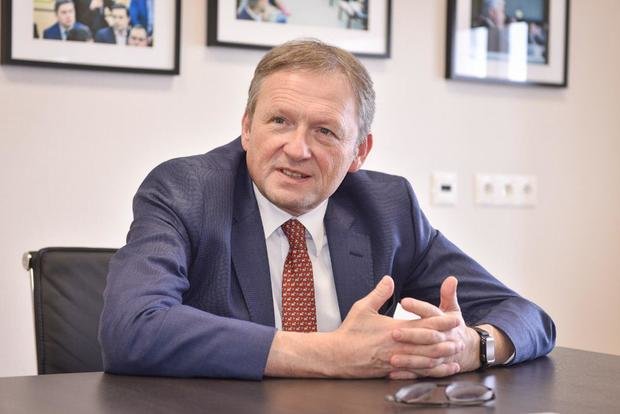
''For many, franchise is a swear word''
As part of the conversation about franchise, franchisee of Japanese hairdressers Chio Chio Ilnaz Nabiullin took the floor.
''For many, franchise is a swear word. But at the same time, America was built on this. The impact of the franchising market on the opening of new businesses is underestimated. Now through us there open about 20-25 IEs (individual entrepreneur's status) every month. This is new entrepreneurs.''
''How many are closing?'' Titov asked.
''Of course, there are those who close. But today we have 173 open hairdressers, and closed ones due to financial failure — 0. Three closed for other reasons.''
Another expert on franchises Renat Dusaev noted that on average in Russia about 2,000 franchises are bought every month. Dusaev offered to subsidize their opening. Another problem, in his opinion, is that in Russia there is no law on franchising, and therefore there is no regulation of this market. ''In the US, the franchisor is obliged to publish financial statements to show what business really makes a profit. But we in our country can only search for reviews on the Internet,'' said Dusaev.
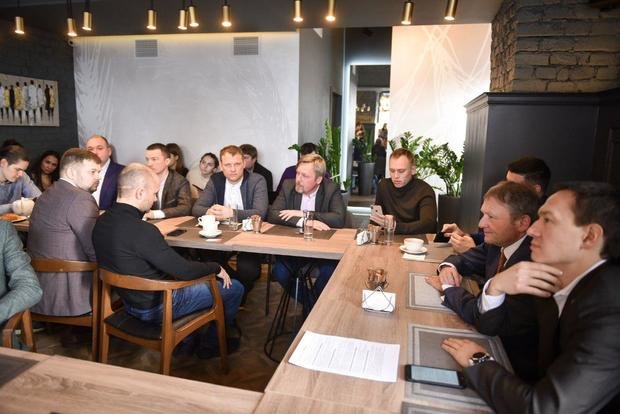
''There should be no support in business''
From the franchise conversation they moved to the network business. The founder of the Tatar fast food Tubetey, Sultan Safin, expressed regret that the trust in national products is low today. Therefore, it is necessary to overcome this obstacle separately, which requires patience.
Quite memorable was the speech of the founder of the networks 5th Wheel and Moydodyr, Aidar Ismagilov. His companies now employ 2,200 employees, and the points are scattered across 12 cities of the country.
''My principled position that in business there was no support at all. The company 5th Wheel became federal in spite of, not because of,'' said Ismagilov. ''By the way, bad news for Sultan. I am developing the franchise Kystyby, and we plan to open another seven outlets,'' he teased Safin.
''We have such a trend that the government is evading direct support, giving nonrepayable money less and less. SMEs in Tatarstan last year attracted 180 billion rubles of loans. The state through the ministry of economy covers 2 billion at most. The state will never cover the need of the market,'' said Timur Nagumanov.
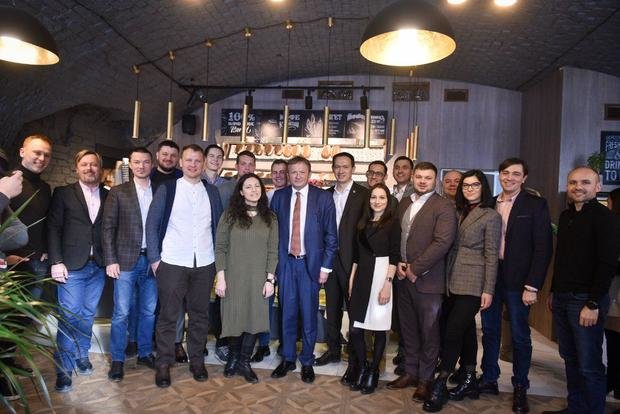
More agricultural parks and feed-in tariffs
Co-founder of the network Pokrovsky Pekarni Tagir Akhmerov expressed the wish that the rules of the game set by regulators and supervisory authorities were more understandable. It is primarily relates to Rospotrebnadzor (Federal Service for the Oversight of Consumer Protection and Welfare) and fire services.
''SMEs should be provided with state support so that we can fight the economy of scale. If a few years ago we worked on the Italian equipment, now, in the economy of scale, it soared in price twofold,'' Akhmerov outlined another problem.
Also, the businessman proposed to develop sites similar to the agro-industrial park, and to introduce preferential tariffs for business for electricity.
Titov accompanied the performances of the participants with comments and advice. At the end of the event, the business ombudsman once again stressed the role of business education for entrepreneurs, noting that today it is the most important trend.